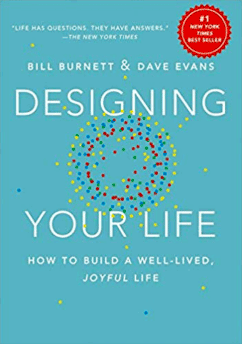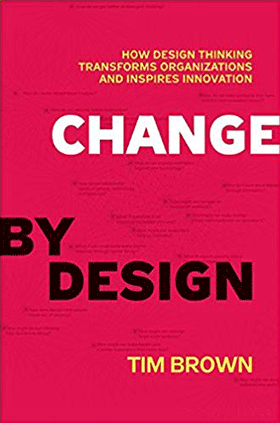Business: Design Thinking
UXmatters has published 22 articles on the topic Design Thinking.
Top 3 Trending Articles on Design Thinking
-
How IBM Is Embracing the Future Through Design
February 6, 2017No CommentsShifting trends are forcing technology companies to reimagine their value proposition. IBM has chosen to create disruption through design. In embracing the future, the company is essentially invoking its past. Back in 1956, IBM was the first large company to establish a corporate-wide design program. But this time, the company’s goals are more ambitious.
Recently, we interviewed Karel Vredenburg, Director of IBM Design’s worldwide client program and head of IBM Studios in Canada, who told us, “We’ve put everything into this transformation.” The company is investing more than $100 million in becoming design centered. Read More
-
Designing Your Life Using Design Thinking
February 10, 2020 Design thinking. It’s probably something you use in your job every day to tackle thorny design problems. But have you ever thought about using it to design your life?
Design thinking. It’s probably something you use in your job every day to tackle thorny design problems. But have you ever thought about using it to design your life?In their book, Designing Your Life, Bill Burnett and Dave Evans outline a step-by-step process, using design thinking, to help people build lives in which they can find fulfillment and joy. This review highlights some techniques from the book that people have used successfully in achieving their professional and career objectives. To get a complete understanding of the Life Design process, though, you need to read the book. Read More
-
Book Review: Change by Design
March 23, 2020 Interest in design thinking as a professional practice seems to ebb and flow. Currently, we’re in a period when there is great interest in design thinking. This trend may lead to some confusion or even consternation among my UX colleagues, who may see design thinking as a faux version of User Experience that dilutes interest in the real work that UX professionals do. Other criticisms of design thinking are that it is derivative of other innovation methods and that its reliance on empathy is a poor stand-in for doing real user research.
Interest in design thinking as a professional practice seems to ebb and flow. Currently, we’re in a period when there is great interest in design thinking. This trend may lead to some confusion or even consternation among my UX colleagues, who may see design thinking as a faux version of User Experience that dilutes interest in the real work that UX professionals do. Other criticisms of design thinking are that it is derivative of other innovation methods and that its reliance on empathy is a poor stand-in for doing real user research.While these criticisms are fair, they may be misdirected. Certainly, design-thinking workshops take certain shortcuts. An abbreviated description of design thinking might emphasize the need for multiple iterations and the fact that an innovation process diverges at the beginning, then converges on possible solutions. The assumption is that insights arise from a project team alone, with little to no interaction with users. However, design thinking has made creativity and design processes accessible to more people and introduced new ways of building consensus. Read More
Columns on Design Thinking
-
Ask UXmatters
Get expert answers
A column by Janet M. Six
All Articles on Design Thinking
- How to Foster Design Thinking in Remote Teams
- Effects of Emotions on Design-Thinking Workshops
- Content, AI, and the Human Touch: Applying Design Thinking to the Legal Market
- Creating Products Collaboratively: A Design-Thinking Case Study
- Integrating Design Thinking into Organizations
- Prototyping User Experiences: Reducing the Risks of Product Innovation
- Book Review: Change by Design
- Designing Your Life Using Design Thinking
- Book Review: Innovation by Design
- Collecting Data Is One Thing—Acting on It Is Another
- Delivering Innovation
- What Children Have Taught Me About Design
- Design Thinking and Digital Intent, Part 2
- Design Thinking and Digital Intent, Part 1
- What DesignOps Can Learn from DevOps
- The Role of Empathy in Understanding Users
- Interview with Kurt Walecki, VP of Design at Intuit
- How IBM Is Embracing the Future Through Design
- Practical UX Design
- Applying UX Design Methods to Organizational Design and Teamwork
- Fostering Innovation and Creativity | Project Scoping
- Design Thinking | Employing Design Principles | Defining Ease of Use
New on UXmatters
- Linking Customer Experience to Business Results for Sustainable Growth
- Using AI to Design Better Mobile-App User Experiences
- Leveraging the Psychology of Color in UX Design for Health and Wellness Apps
- Elevating the User Experience and Fostering Loyalty: Accessible Design for Travel-Booking User Interfaces
- Using Data Analytics to Optimize the In-Store and Online Retail Experience